In this post, we’ll walk through the process of building and deploying an Azure Function App using Python to automatically post your LeetCode progress to a Webex room. The app is serverless, integrates with Azure Key Vault for secret management, and is scheduled to run with a timer trigger.
To follow with the post, you can check the code here
Project Overview
We’ll cover the following:
- Building the Azure Function App using Python
- The app contains the function of: Fetching recent LeetCode submissions with GraphQL, posting messages to Webex using their API and Securing secrets with Azure Key Vault
- Deploying and testing the app
Creating the Function App - Azure Portal
Start by navigating to the Azure Portal, and under “Function App”, click Create Function App.
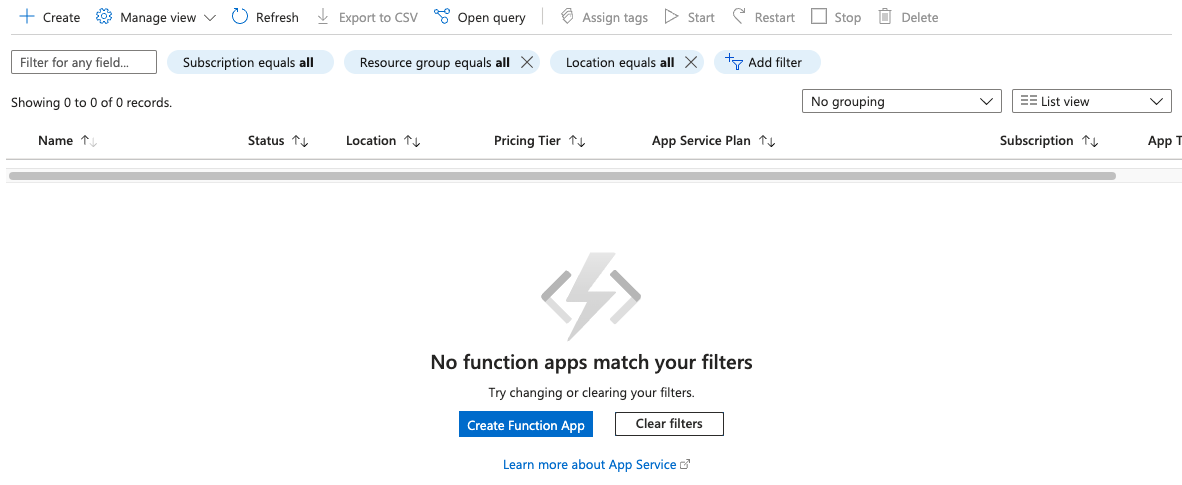
Choose the consumption plan that is suitable for your use case, in our case, we will be using Flex Consumption
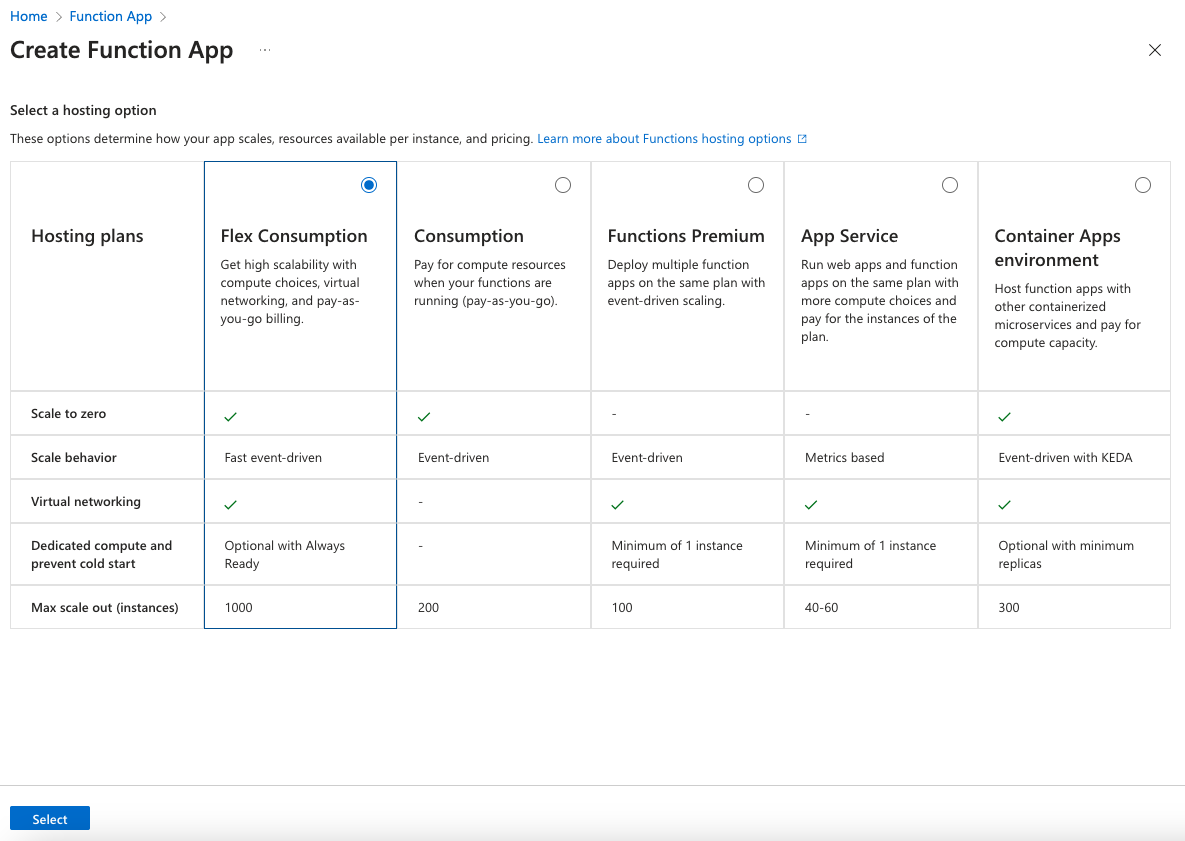
Then fill in the relevant information
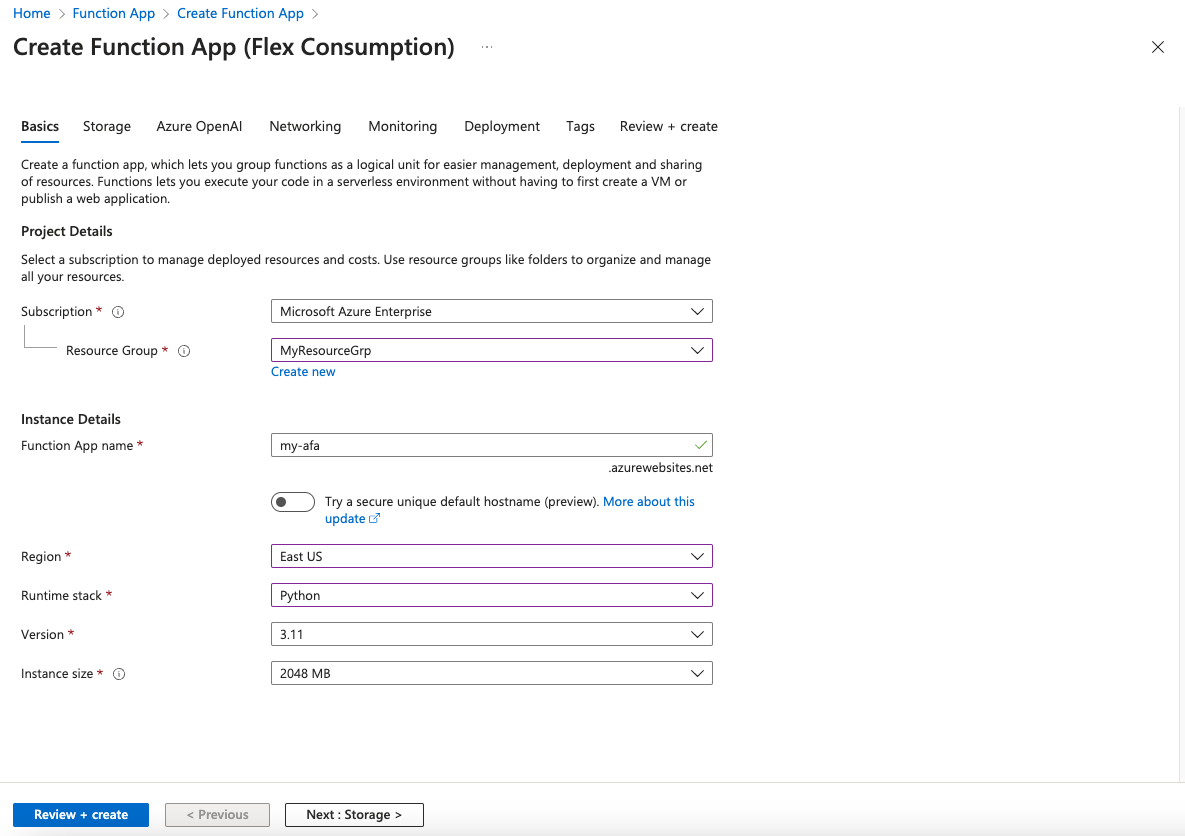
Enable Basic Auth for smoother vscode development process.
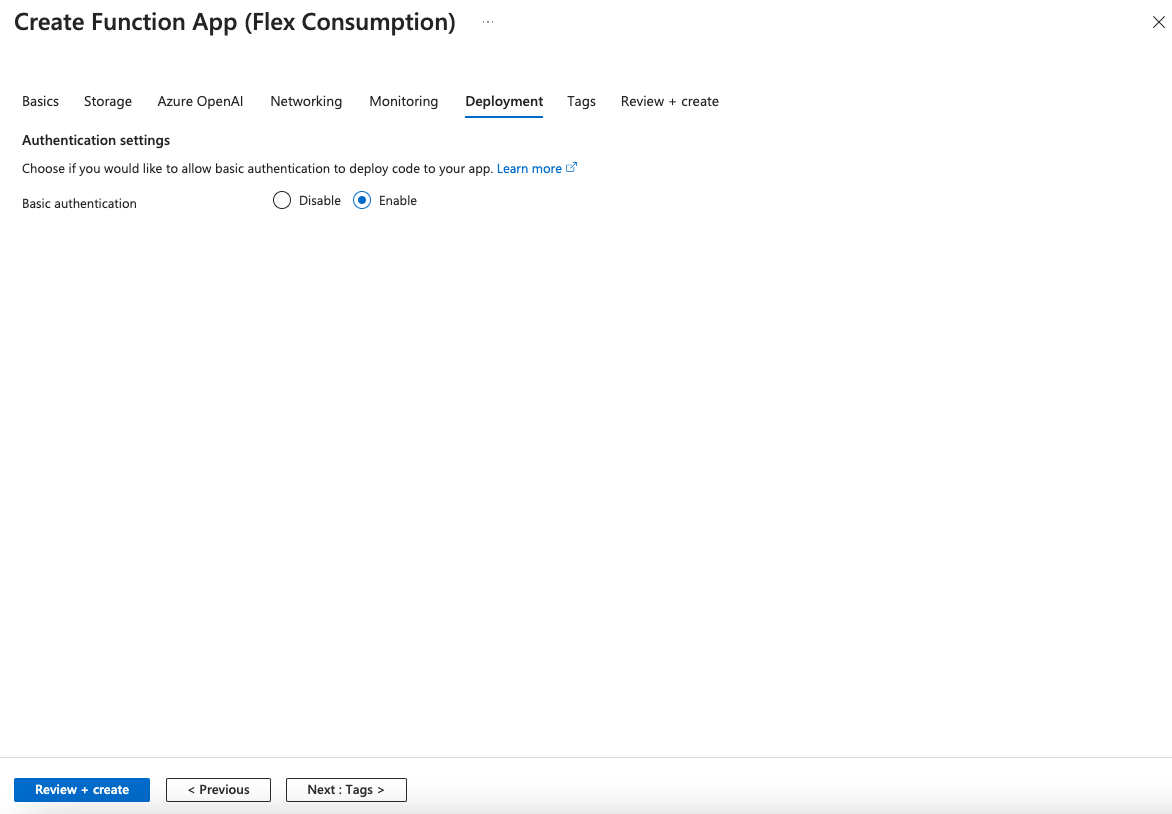
And finally we can click on Reivew + create, and it will shows the following:
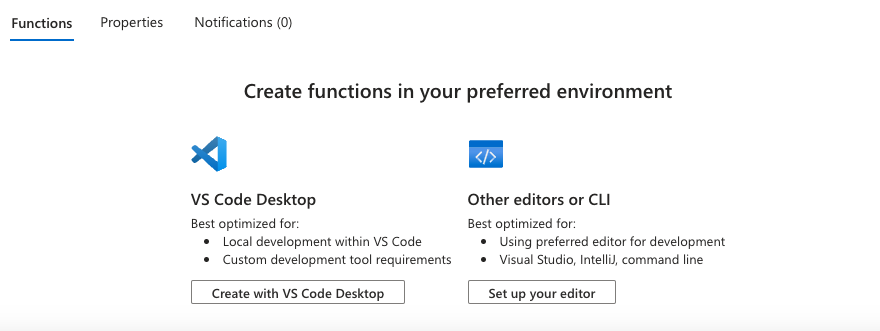
Creating the Function App - VS Code
In this case, we will be developing the azure function app with VS Code.
As a first step, if you haven’t done so, we will have to install the below
brew tap azure/functions
brew install azure-functions-core-tools@4
Once we have authenticated to our Azure subscription with VSCode, we can create the function with below:
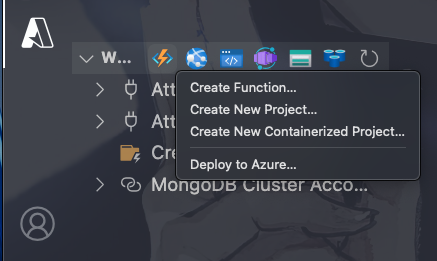
Then we will have to choose the programming language, we will be using python 3.11
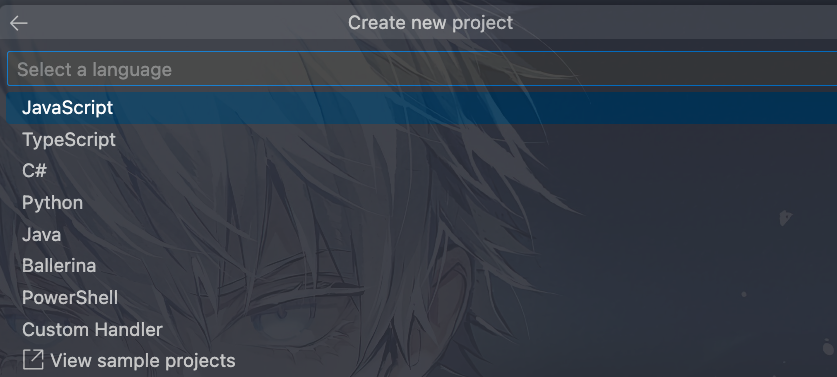

We can use a Timer Trigger for now, and in the next post, we will discuss using a HTTP Trigger.
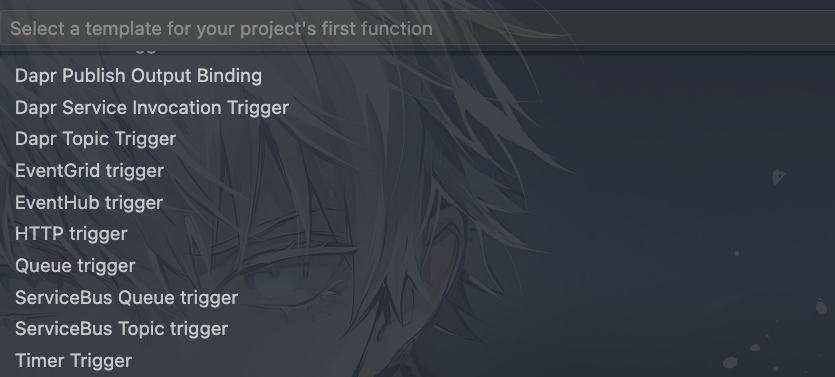

Python Project Structure
Here’s how the project is structured:
.
├── README.md
├── host.json
├── requirements.txt
├── function_app.py
├── helpers
│ ├── azure_kv.py
│ ├── webexapi.py
│ └── leetcode.py
└── settings.py
Let’s talk a bit about the code!
Fetching and Formatting LeetCode Data
Under helpers/leetcode.py, we define functions to fetch recent LeetCode submissions via GraphQL and count submissions on a specific date.
import requests
from datetime import datetime, timezone
from random import choice
from settings import app_config
from helpers.webexapi import post_to_webex
def fetch_recent_submissions(username, limit=30):
query = """
query recentAcSubmissions($username: String!, $limit: Int!) {
recentAcSubmissionList(username: $username, limit: $limit) {
id
title
titleSlug
timestamp
}
}
"""
variables = {"username": username, "limit": limit}
headers = {
"Content-Type": "application/json",
}
response = requests.post(
app_config.LC_GRAPHQL_URL,
json={"query": query, "variables": variables},
headers=headers,
)
if response.status_code == 200:
return response.json()
else:
raise Exception(
f"Query failed with status code {response.status_code}: {response.text}"
)
def count_submissions_on_date(submissions, target_date):
count = 0
target_date = datetime.strptime(target_date, "%Y-%m-%d").date()
question_titles = []
for submission in submissions:
submission_date = datetime.fromtimestamp(int(submission["timestamp"])).date()
if submission_date == target_date:
count += 1
question_titles.append(submission["title"])
return count, question_titles
def summary_lc():
target_date = datetime.now().strftime("%Y-%m-%d")
data = fetch_recent_submissions(app_config.LC_USERNAME)
submissions = data.get("data", {}).get("recentAcSubmissionList", [])
count, question_titles = count_submissions_on_date(submissions, target_date)
if question_titles:
final_str = f"<blockquote class=info>\n\n**{target_date}**\n\n**Number of LeetCode Questions Solved:** {count}\n\n"
final_str += "**Questions Solved:**\n"
for title in question_titles:
final_str += f"- {title}\n"
final_str += f"\n\n</blockquote>"
else:
final_str = f"<blockquote class=danger>\n\n**{target_date}**\n\n**NO LeetCode Questions Solved**\n\n</blockquote>"
post_to_webex(app_config.BOT_TOKEN, app_config.ROOM_ID, final_str)
Wrapping up everything in function_app.py
import logging
import azure.functions as func
from helpers.leetcode import summary_lc
app = func.FunctionApp()
@app.timer_trigger(
schedule="* 58 0 * * *", arg_name="myTimer", run_on_startup=False, use_monitor=False
)
def leetcode_summary(myTimer: func.TimerRequest) -> None:
summary_lc()
logging.info("Python timer trigger function executed.")
Local Testing
You can test the function locally using:
func start

Then verify with:
curl --request GET http://localhost:7071/api/leetcode-summary

Deploying to Azure
Deploy your app via VS Code or CLI:

After successful deployment:

You can now run a test in the Azure portal:
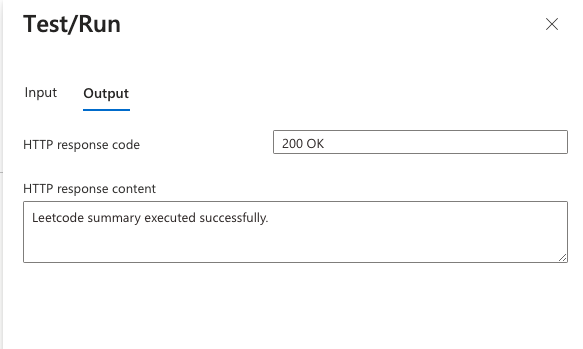
And voilà! Your Webex room will now display the daily summary:
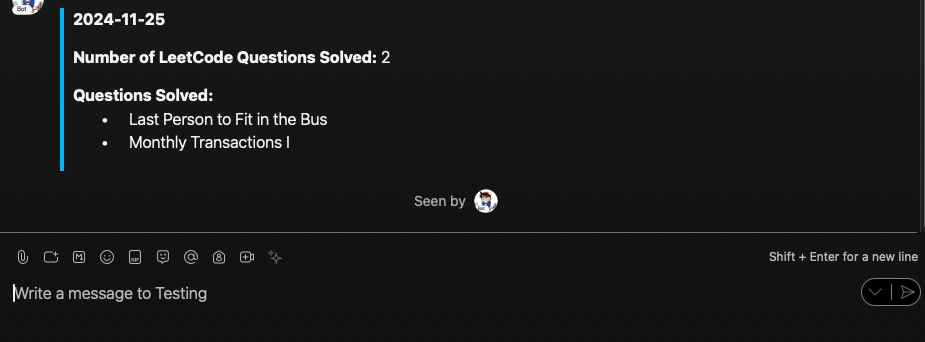
With this setup, you now have a fully automated Azure Function App that fetches your daily LeetCode submissions and posts them to Webex. It’s secure, serverless, and easily extensible—whether you want to visualize trends or track your weekly consistency.
Thanks for reading!



